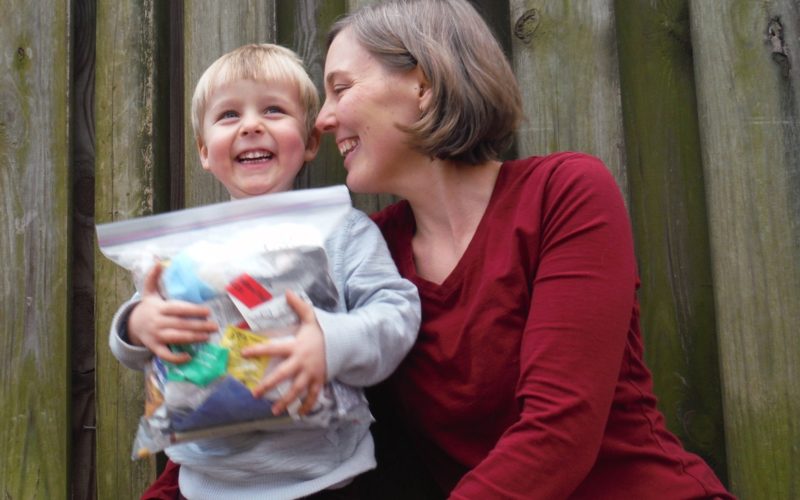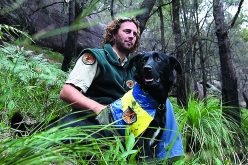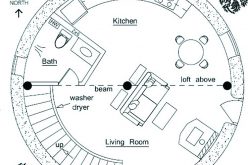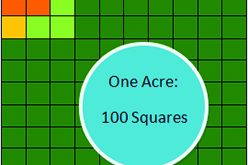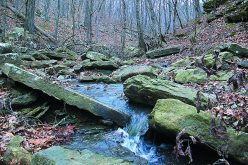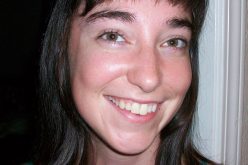Environmentalist throws nothing away
AMANDA BANCROFT
Making Ripples

Photo courtesy Amanda Bancroft
This year marks the 10th anniversary of Rose Brown’s Zero Garbage Challenge. She threw away her last bag of garbage on Dec. 31, 2008, and still doesn’t throw anything away today. The bag contains the trash she wasn’t able to compost or recycle over the decade.
This year marks the 10th anniversary of Rose Brown’s Zero Garbage Challenge. Rose ceremonially threw away her last bag of garbage on Dec. 31, 2008, and still doesn’t throw anything away today!
“I made some rules for myself: I couldn’t throw away anything that would end up in the landfill, but composting, reusing and recycling are all OK,” she explained. She does have a large zipper bag of all the trash she generated but didn’t throw away over the past decade — quite impressive to behold for those of us who take out a garbage bag every week.
She never leaves the house without a few essentials: reusable utensils, metal straw, cloth napkins, a thermos or water bottle, a handkerchief or rag, a pencil and to-go containers for leftover food. Pro tip: Containers made with stainless steel, plastic or another lightweight materials work great because glass can break more easily, and it gets heavy to carry after awhile.
This lifestyle requires more bulk cooking and a diet that mostly excludes packaged foods. Rose is a member of a local food swap with her friends. Every week they share what they’ve cooked in containers, so everyone goes home with several meals even though they only had to cook one bulk meal. She’s also a co-founder of a Waldorf outdoor school for kindergarten and first grade. Her 5-year-old son — who is also zero garbage — walks with her across a field to attend school run in a cooperative style with 10 families and six kids enrolled. Parents take turns teaching once a week. Her son keeps his own large zipper bag of garbage he’s generated at birthday parties or from food items he decided were worth it. He’s just reached the age where he has opinions about things, and Rose gives him freedom to choose what products he wants badly enough to keep the trash, just like she does with her own bag.
For treats, she enjoys special expensive apples at Ozark Natural Foods instead of a fancy sweetened coffee drink. A gorgeous piece of local food or bulk chocolate are gifts she gives herself. For special occasions, she cooks fermented buckwheat pancakes that require 24 to 36 hours to make. They’re so delicious, and the family takes time to enjoy them after all that effort. The best treat, she says, is probably sitting on her couch after dropping her son off at school and enjoying down time with no guilt.
They live in an 8-by-22 foot tiny house just outside Fayetteville. It’s on the electric grid, but Rose hopes to go solar in a year or so. They use a composting toilet with greywater treatment and rainwater collection. Rain is collected in two 250-gallon tube tanks, but it rains so much that they’ve only used one. Another two 55-gallon drums store water inside an insulated cabinet attached to the house. They aren’t supposed to freeze, she explains, but they still did when temperatures recently dropped below 15 degrees. It’s a challenging lifestyle.
But Rose is really happy with her decision to go zero garbage. “I thought it would be a year, but it stretched to a decade,” she says. “From the start I knew that it had to be fun and engaging, not a task I put upon myself based on guilt, shame or obligation. Otherwise I’d always be looking for a way to end it.” She got started thinking about changing her lifestyle when she read the book “Your Money or Your Life.” It encouraged readers to reduce spending and make conscientious choices about their time and money. “Now I can have a part-time job and afford to live just fine. I was working for environmental nonprofits in Virginia. Now I’m the volunteer coordinator at Crystal Bridges. I want to be around for my son; I prefer spending time with him compared to spending more money or having more stuff. I never feel like I’m lacking, but I earn less than everybody I know,” she explains with a laugh.
She even makes her own toiletry products like toothpaste, soap and deodorant. For Rose’s deodorant, combine 1/8 cup baking soda, 1/8 cup cornstarch and 5 to 10 drops of essential oils (like lavender, mint or a scent you enjoy). Mix it with lotion or coconut oil ahead of time, or mix with water or lotion right before use.
Lots of people compost, but Rose offers a whole list of compostable items you may not have realized were OK. These include dryer lint, crepe paper streamers, pencil shavings, nail clippings, wine corks and many more. This list is offered on her website along with alternatives to common disposable household products, toiletries, food, pet and childcare items. There is also a workbook and downloadable handy checklists for anybody who wants to get started reducing their trash. Learn more at ZeroGarbageChallenge.info or look up “zero garbage” to like and follow her Facebook page. What do you already do in your daily life that reduces trash? Whatever your goals may be, inspiration is everywhere!
Amanda Bancroft is a writer, artist, and naturalist living in an off-grid tiny house on Kessler Mountain. She and her husband Ryan blog about their adventures and offer tips to those wanting to make a difference at www.RipplesBlog.org.

